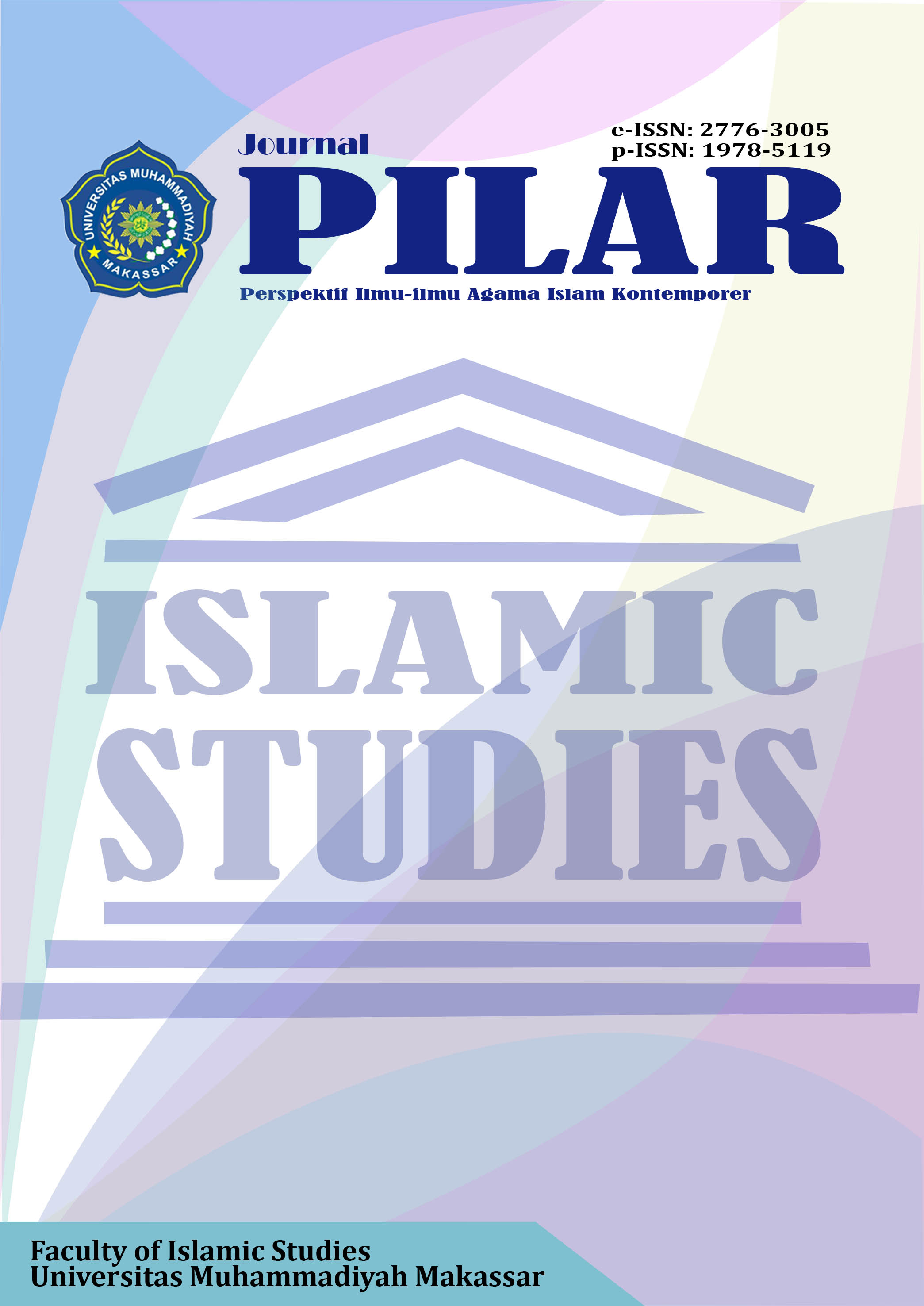EKONOMI SYARIAH VS EKONOMI KONVENSIONAL
DOI: https://doi.org/10.26618/fbqm6t54
Abstract
Abstract
Syariahic economics and conventional economics are two different economic systems which from time immemorial have become one of the determining factors for success in the economic development of a country and even the world economy. This study aims to describe the application and contribution of the two economic systems in building the country's economy. This study uses a qualitative approach with library research, which is a series of activities carried out with regard to the method of collecting library data, or studies explored through various library information. (books, encyclopedias, scientific journals, newspapers, magazines, and documents), which discuss the Conventional Economic System and the Syariahic Economic System. The results of the study show that the Conventional Economic System consists of 2 economic systems, namely; 1) Capitalism economic system that developed because of the policies of colonialism and imperialism that affect Asian and African countries where this system is based on the struggle for freedom where the government may not take part in its implementation. 2) a socialist economic system that arises as a result of protests over injustices applied to the capitalist economic system where the rich are getting richer, and the poor are getting poorer, this is the socialist economic system that comes with providing considerable freedom but with a note that the government takes part in its implementation. Furthermore, the Syariahic Economic System is an economic system that has finally become a solution to various problems that have arisen so far. and the poor are getting poorer, this is a socialist economic system that comes with providing considerable freedom but with a note that the government takes part in its implementation. Furthermore, the Syariahic Economic System is an economic system that has finally become a solution to various problems that have arisen so far. and the poor are getting poorer, this is a socialist economic system that comes with providing considerable freedom but with a note that the government takes part in its implementation. Furthermore, the Syariahic Economic System is an economic system that has finally become a solution to various problems that have arisen so far.
Keywords: Syariahic Economics; Economics of Capitalism, Economics of Socialism
References
Ahmad, J. (2013). Sistem Ekonomi Islam. Islamic Character Development.
Ali, M. (2021). Relevansi Konsep Perpajakan Menurt Abu Yusuf dan Ibnu Khaldun terhadap Perekonomian di Indonesia. Al-Idarah, 2(1), 1–21.
Andreski, S. (1996). Max Weber : Kapitalisme Birokrasi dan Agama. Tiara Wacana.
Ansori, A. (2016). Digitalisasi Ekonomi Syariah. Islamiconomic: Jurnal Ekonomi Keuangan Dan Bisnis Islam, 7(1).
Ansori, A., Sultan, I., & Hasanuddin Banten, M. (2016). Perbedaan Paradigma Ekonomi Konvensional dan Ekonomi Islam dalam Teori dan Realita (Perspektif Mikro). Idr.Uin-Antasari.Ac.Id, 7(1).
Azhar. (2017). Antara Ekonomi Islam Dan Ekonomi Konvensional. Jurnal Islamika, 17, 1–16.
Aziz, A. (2018). Dasar Ekonomi Islam. In STAIDA Press (Issue Juli).
Dr. Itang., M. A. (2015). Teori ekonomi islam. Laksita Indonesia.
Dr. Rozalinda, M. A. (2014). Ekonomi islam teori dan aplikasinya pada aktivitas ekonomi. Rajagrafindo Persada.
Dr. Yadi Janwari., M. (2016). Pemikiran ekonomi islam. Remaja Rosdakarya.
Entrepreneur-youngsterinc. (2021). Sisi Lain Ungkapan “Orang Kaya Akan Semakin Kaya dan Orang Miskin Akan Tetap Miskin.” Universitas Al Azhar Indonesia.
Finansialku.com, T. (2021). Sisi Lain Ungkapan “Orang Kaya Akan Semakin Kaya dan Orang Miskin Akan Tetap Miskin.” SWA.Co.Id.
Hikma, N. (2020). Ekonomi Islam.
Hasan, H. A. (2021). SUMBER HUKUM DALAM SISTEM EKONOMI ISLAM. PILAR, 12(2), 66-78.
Muslimin, J. (n.d.). Fisafah Ekonomi Syariah.
Nia. (2020). Sistem Ekonomi Kapitalis. Blok Mahasiswa Stie Pasim.
Stiglitz, Joseph E., 1943-, Suhaeni, A., & Nasution, I. (2006). Dekade keserakahan : era 90-an dan awal mula petaka ekonomi dunia. Marjin Kiri.
Sugiharti, & Purwanto, R. (2018). Qabalah Menurut Abu Yusuf Dalam Kitab Al-Kharraj Dan Aplikasinya Dalam Perpajakan Di Indonesia.
Todaro, M. P. (1985). Economic development in the Third World. Longman.
Untari, A. (2018). Sistem Ekonomi Kapitalisme di Indonesia. Kompas.Com, 152–166.








